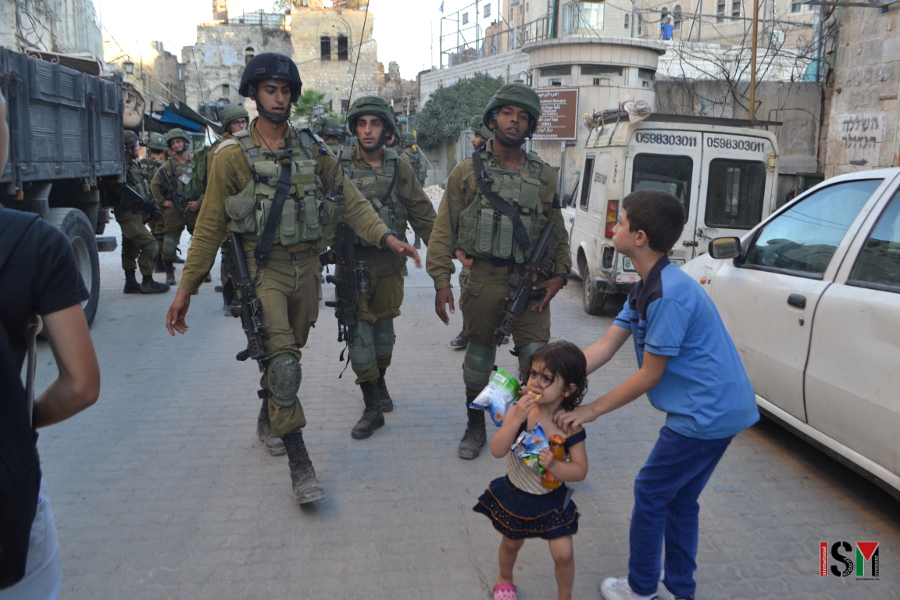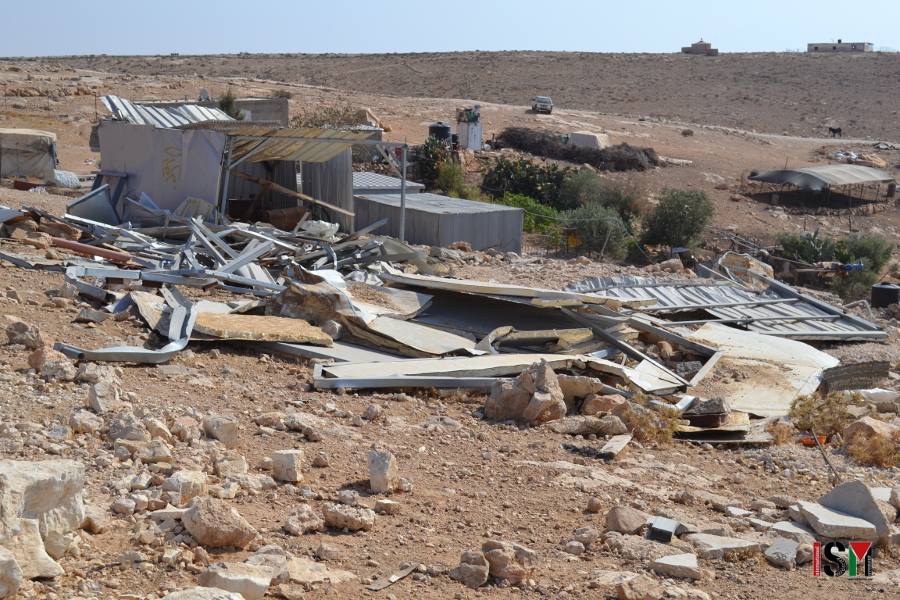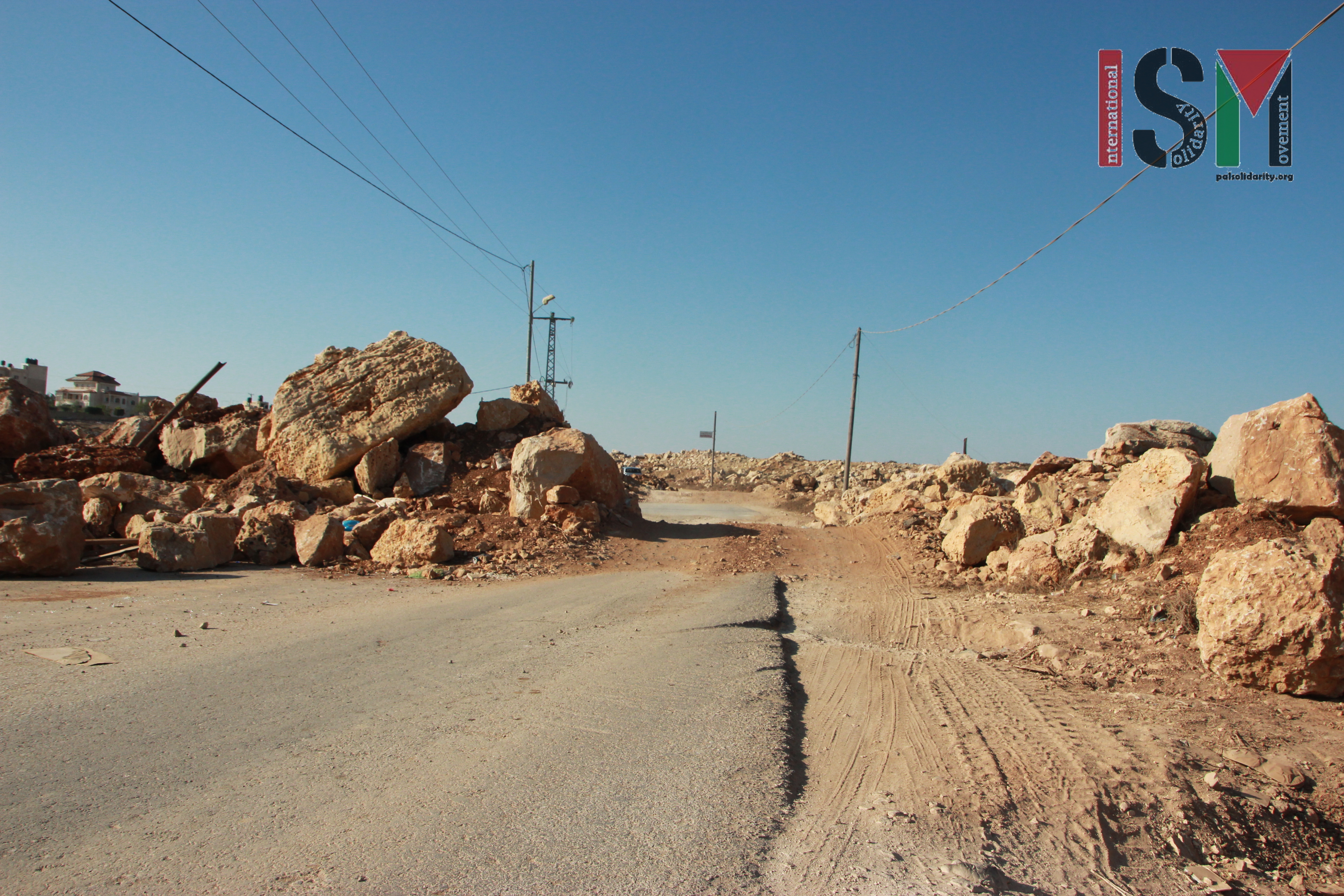Tag: Arrests
-
Three children arrested in occupied Hebron
23rd August 2017 | International Solidarity Movement, al-Khalil team | Hebron, occupied Palestine Three underage boys, 2 aged 13 and 1 aged 14, were arrested today in occupied Hebron (al-Khalil), the soldiers accusing them of throwing stones. Up to 40 soldiers went out of their military base in Bab al-Baladdbiya, and raided several houses searching…
-
Continued military presence in demolition-threatened Umm Al-Kheir
22nd August 2017 | International Solidarity Movement, al-Khalil team | Um Al-Kheir, occupied Palestine Three young Palestinian men were detained by Israeli occupation forces on Friday the 19th of August. The men, residents of the Bedouin community Um Al-Kheir, were held by soldiers for two hours and forced to sit against the fence bordering up…
-
Settlers from illegal Halamish settlement block Route 450 for Palestinians in revenge
20th August 2017 | International Solidarity Movement, Huwwara-team | Nabi Saleh, occupied Palestine On 23rd July, two days after the killing of three settlers from the illegal settlement of Halamish, settlers blocked Route 450 with self-made barricades preventing Palestinians from using the main road, which connects Nabi Saleh village with the south Baytillu . The…



